Democracy of Ancient Greece
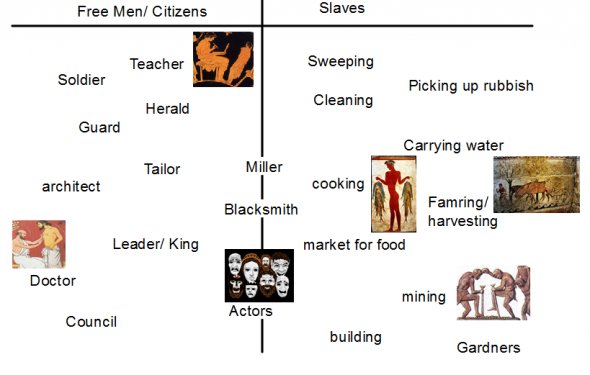
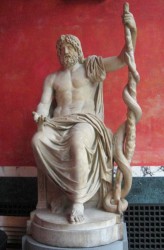 The ancient Greeks initially regarded illness as a divine punishment and healing as, quite literally, a gift from the gods. However, by the 5th century BCE, there were attempts to identify the material causes for illnesses rather than spiritual ones and this led to a move away from superstition towards scientific enquiry, although, in reality, the two would never be wholly separated. Greek medical practitioners, then, began to take a greater interest in the body itself and to explore the connection between cause and effect, the relation of symptoms to the illness itself and the success or failure of various treatments.
The ancient Greeks initially regarded illness as a divine punishment and healing as, quite literally, a gift from the gods. However, by the 5th century BCE, there were attempts to identify the material causes for illnesses rather than spiritual ones and this led to a move away from superstition towards scientific enquiry, although, in reality, the two would never be wholly separated. Greek medical practitioners, then, began to take a greater interest in the body itself and to explore the connection between cause and effect, the relation of symptoms to the illness itself and the success or failure of various treatments.
Practitioners
As there were no professional qualifications for medical practitioners then anyone could set themselves up as a doctor and travel around looking for patients on whom to practise what was known as the tekhnē of medicine (or art, albeit a mysterious one). The Spartans did, though, have specific personnel responsible for medical care in their professional army. Also, practitioners do seem to have generally enjoyed a high regard despite the lack of a recognised professional body to supervise and train would-be doctors and the odd mad doctor that crops up in Greek Comedy. As Homer states in the Iliad (11.514), ‘a doctor is worth many other men’. Not only doctors gave medical advice and treatment but other groups who could utilise their practical experience such as midwives and gym trainers.
The famous Hippocratic Oath was probably reserved for a select group of doctors and it was actually a religious document ensuring a doctor operated within and for community values. With the Oath the practitioner swore by Apollo, Hygieia and Panacea to respect their teacher and not to administer poison, abuse patients in any way, use a knife or break the confidentiality between patient and doctor.
Famous medical practitioners included the 4th century BCE figures of Diocles of Carystus (who had a head bandage and spoon instrument for removing arrow heads named after him), Praxagoras of Cos (noted for his ‘discovery’ of the pulse and being the first to distinguish veins from arteries), and the Athenians Mnesitheus and Dieuches. These experts in their field could examine a patient’s face and make a diagnosis helped by information such as the patient’s diet, bowel movements, appetite and sleeping habits.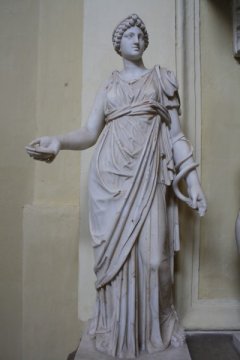 Treatments often utilised natural plants such as herbs and roots but could also include the use of amulets and charms. Surgery was generally avoided as it was considered too risky but minor operations may have been carried out, especially on soldiers wounded in battle.
Treatments often utilised natural plants such as herbs and roots but could also include the use of amulets and charms. Surgery was generally avoided as it was considered too risky but minor operations may have been carried out, especially on soldiers wounded in battle.
Treating The Wounded
Wounded soldiers were actually one of the best ways for a doctor to learn his trade and widen his knowledge of the human body and its internal workings. There was probably also less risk of the soldier causing problems if things went wrong, which could happen with private patients. Aside from the health problems which may also have affected civilians such as malnutrition, dehydration, hypothermia, fever and typhoid, those doctors treating soldiers had to deal with wounds made by swords, spears, javelins, arrows and projectiles from slings. Medical practitioners knew the importance of removing foreign bodies such as arrow heads from the wound and the necessity to properly clean the wound (which is why arrow heads became barbed to be more difficult to remove and therefore more lethal). Greek doctors knew that it was important to stop excessive blood loss as soon as possible in order to prevent haemorrhage (although they also thought blood-letting could be beneficial too). Surgery may also have included the use of opium as an anaesthetic, although the many references in literature to patients being held down during surgery would suggest that the use of anaesthetic was rare.
Post-operation, wounds were closed using stitches of flax or linen thread and the wound dressed with linen bandages or sponges, sometimes soaked in water, wine, oil or vinegar. Leaves could also be used for the same purpose and wounds may also have been sealed using egg-white or honey. Post-operation treatment was also considered - the importance of diet, for example, or the use of plants with anti-inflammatory properties such as celery.
Towards Greater Knowledge
Over time doctors came to acquire a basic knowledge of human anatomy, assisted, no doubt, by the observation of grievously wounded soldiers and, from the 4th century BCE, animal dissection. However, some claimed this was useless as they believed the inner body changed on contact with air and light and still others, as today, protested that using animals for such purposes was cruel. Human dissection would have to wait until Hellenistic times when such discoveries as the full nervous system were discovered. Nevertheless, there was an increasing urge to discover what made a healthy body function well rather than what had made an unhealthy one break down. The lack of practical knowledge, though, did result in some fundamental errors such as Aristotle’s belief that the heart and not the brain controlled the body and the idea proposed in the treatise On Ancient Medicine (5th century BCE) that physical pain arises from the body’s inability to assimilate certain foods.
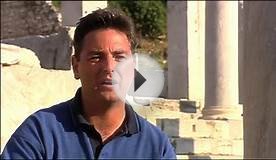

|
Chapters in the History of Actors and Acting in Ancient Greece, Together With a Prosopographia Histrionum Graecorum a Dissertation Presented to He ... of Doctor of Philosophy, (Department Nt Book (Forgotten Books) |
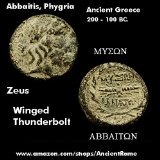
|
Zeus / Winged Thunderbolt. Phygria. 150 BC. Ancient Greek Coin. Unique Gift - Novelty Toy
|

|
MSD Samsung Galaxy S5 Aluminum Plate Bumper Snap Case greece vintage flag IMAGE 20013260 Wireless (MSD Products)
|
|
Two Hippocratic Treatises on Sight and on Anatomy: Edited and Translated with Introduction and Commentary by Elizabeth M. Craik (Studies in Ancient Medicine) Book (Brill) |
|
|
Ancient Greek Bronze Museum Statue Replica of Asclepius Olympian Pantheon God Of Healing Medicine & Doctors Olympian Pantheon God Of Healing & Doctors (212) Home (IconsGr)
|